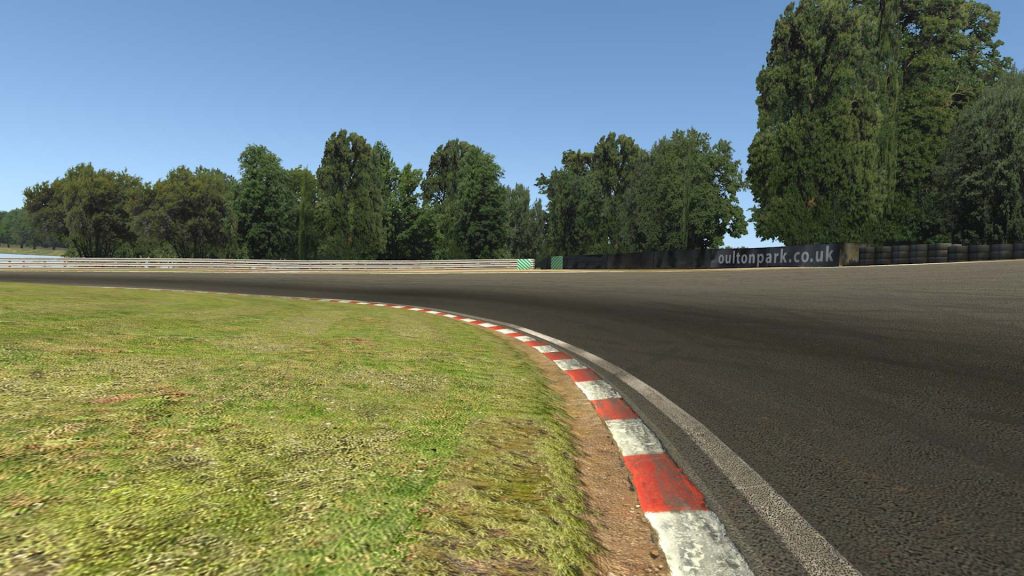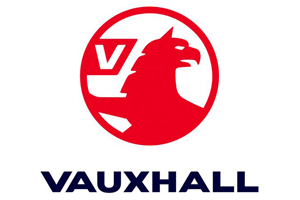A brief history of
Vauxhall-Opel
Introduction
The car manufacturer Vauxhall-Opel has made an important impact on the automotive world. In this article we will give a brief but detailed history of the Vauxhall-Opel marque.
We will look at the origins of Vauxhall-Opel looking at who, why, where and when Vauxhall-Opel was founded. We'll look at the design of the iconic Vauxhall-Opel logo and what are some the more significant Vauxhall-Opel models.
We'll take a glance at what racing history the Vauxhall-Opel has and who some of the most important people have been in the history of Vauxhall-Opel over the years.
Who, where, when and why was
Vauxhall-Opel founded?
Vauxhall-Opel, one of the leading car manufacturers in Europe, has a rich history that dates back over a century. The company was founded by Alexander Wilson in 1857 as a pump and marine engine manufacturer in London, United Kingdom. It wasn't until 1903 that Vauxhall Motors Limited, as it was then known, produced its first car. The company quickly gained recognition for its high-quality vehicles and expanded its operations, eventually merging with Opel in 1925.
The merger between Vauxhall and Opel created a formidable force in the automotive industry. Opel, founded by Adam Opel in 1862, had established itself as a successful German car manufacturer. The merger allowed Vauxhall-Opel to benefit from shared resources, expertise, and a wider market presence. The combination of British and German engineering resulted in the production of innovative and technologically advanced vehicles.
Throughout its history, Vauxhall-Opel has maintained a strong focus on producing cars that meet the needs and preferences of its customers. The company has continuously adapted to changing market trends, incorporating advancements in technology, design, and safety features. This commitment to innovation has allowed Vauxhall-Opel to remain competitive in the ever-evolving automotive industry.
One of the driving factors behind Vauxhall-Opel's foundation and subsequent growth was the aim to provide reliable and accessible transportation to a wide range of customers. The company recognized the growing demand for personal mobility and sought to meet that demand by producing affordable and practical vehicles. From the early days of manufacturing carriages and bicycles, Vauxhall-Opel transitioned into automobile production with a mission to make cars more accessible to the general public.
Furthermore, Vauxhall-Opel has played a significant role in supporting the economies of both the United Kingdom and Germany. The company has been a major employer in these countries, providing thousands of jobs and contributing to the overall economic growth. The manufacturing facilities and research centers established by Vauxhall-Opel have stimulated local economies and fostered technological advancements.
Vauxhall-Opel's foundation in the 19th century and subsequent merger with Opel in the 20th century have laid the groundwork for its success as a leading car manufacturer in Europe. The company's commitment to producing high-quality, innovative, and accessible vehicles has allowed it to maintain a strong presence in the market. Through its rich history and ongoing dedication to meeting customer needs, Vauxhall-Opel has established itself as a reputable and influential player in the automotive industry.
How did the
Vauxhall-Opel logo originate?

How did the Vauxhall-Opel logo originate?
The logo of Vauxhall-Opel, the prominent European car manufacturer, has evolved over time to reflect the company's identity and heritage. The history of the logo can be traced back to the early days of both Vauxhall and Opel as separate entities.
Vauxhall, founded in 1857, initially used a circular emblem with the company name in the center. This design featured intricate details and a sense of elegance, reflecting the craftsmanship and attention to detail associated with the brand. As the company progressed and merged with Opel in 1925, the logo underwent a transformation to incorporate elements from both entities.
The current Vauxhall-Opel logo is a blend of the two original logos. It features a circular shape with a horizontal line running through the center, dividing it into two halves. On the left side, the Vauxhall emblem consists of a griffin, a mythical creature that symbolizes strength and power. The griffin represents the Vauxhall heritage and the British influence on the brand. On the right side, the Opel emblem features a circular badge with the company name and a lightning bolt, representing energy and innovation.
This combined logo showcases the union of Vauxhall and Opel, representing the collaboration between two strong automotive companies. It encapsulates their shared values of quality, performance, and forward-thinking. The logo's design is clean, modern, and instantly recognizable, reflecting Vauxhall-Opel's commitment to staying relevant in a competitive market.
What are some of the significant
Vauxhall-Opel models?
Vauxhall-Opel has produced numerous significant models throughout its history, including several high-performance vehicles that have left a lasting impact on the automotive industry. From classic sports cars to modern performance machines, these models showcase the engineering prowess and innovative spirit of the company.
In the early years, Vauxhall-Opel introduced iconic models that set the foundation for its future success. The Vauxhall 30-98, launched in 1913, was one of the world's first true sports cars. With a powerful 4.5-liter engine and advanced engineering for its time, the 30-98 delivered impressive performance and handling. Another notable model was the Opel Olympia, introduced in the late 1930s. It featured streamlined styling, innovative technology, and a robust engine, making it a popular choice among car enthusiasts.
As Vauxhall-Opel continued to evolve, it unveiled high-performance models that captured the attention of driving enthusiasts. In the 1960s, the Vauxhall Viva GT emerged as a compact sports car with a powerful engine and agile handling. It became a popular choice for rallying and motorsport competitions. Meanwhile, Opel introduced the Opel GT, a sleek and stylish sports car that showcased the brand's design capabilities.
In the 1980s and 1990s, Vauxhall-Opel showcased its engineering prowess with the introduction of performance-oriented models. The Vauxhall Astra GTE and the Opel Kadett GSi were hot hatchbacks that combined practicality with exhilarating performance. These models featured sporty styling, powerful engines, and upgraded suspensions, making them popular among performance car enthusiasts.
In recent years, Vauxhall-Opel has continued to produce high-performance models that push the boundaries of technology and performance. The Vauxhall Corsa VXR and the Opel Corsa OPC deliver impressive power and handling in a compact package. These hot hatchbacks feature turbocharged engines, advanced chassis systems, and aerodynamic enhancements, allowing them to compete with some of the best performance cars in their segment.
Furthermore, the Vauxhall-Opel lineup includes the high-performance VXR and OPC variants of various models, such as the Vauxhall Insignia and the Opel Astra. These models offer exhilarating performance, sporty styling, and track-inspired technology, appealing to drivers seeking a thrilling driving experience.
Vauxhall-Opel has a long history of producing significant models, including a range of high-performance vehicles. From the early sports cars to the modern hot hatchbacks, these models exemplify the company's commitment to engineering excellence and delivering an exciting driving experience. With each new generation, Vauxhall-Opel continues to innovate and create vehicles that cater to the desires of performance car enthusiasts.

One of Vauxhall-Opel's Most Iconic Models
Who are some of the most important people in
Vauxhall-Opel's History
Vauxhall-Opel owes much of its success and innovation to the contributions of numerous significant individuals who have played pivotal roles in shaping the company's history. These individuals, with their talent, vision, and leadership, have left a lasting impact on the brand and the automotive industry as a whole.
One notable figure in Vauxhall-Opel's history is Alexander Wilson, the founder of Vauxhall Motors. Wilson established the company in 1857 and played a key role in its early development. His entrepreneurial spirit and commitment to innovation laid the foundation for Vauxhall's success as a prominent automaker. Wilson's vision helped Vauxhall become one of the oldest and most respected car manufacturers in the United Kingdom.
Another influential figure in the history of Vauxhall-Opel is Karl Opel, one of the founding members of the Opel brand. Karl, along with his brothers Adam, Wilhelm, and Friedrich, expanded their father's sewing machine business into the automobile industry. The Opel brothers' dedication to quality craftsmanship and their ability to adapt to changing market demands propelled Opel to become one of the largest and most successful car manufacturers in Germany.
In the modern era, several individuals have made significant contributions to Vauxhall-Opel's success. One such individual is Carl-Peter Forster, who served as the CEO of Opel from 2001 to 2004. Forster played a crucial role in the restructuring and revitalization of Opel during a challenging period. His strategic decisions and focus on product development helped strengthen the brand's position in the market and laid the groundwork for future success.
Another notable figure in Vauxhall-Opel's recent history is Dr. Karl-Thomas Neumann, who served as the CEO of Opel from 2013 to 2017. Neumann brought a fresh perspective to the company, emphasizing innovation and efficiency. Under his leadership, Opel introduced several new models and implemented cost-saving measures, leading to improved financial performance and increased customer satisfaction.
Furthermore, the talented engineers and designers at Vauxhall-Opel have played a crucial role in shaping the brand's reputation for technological advancements and stylish design. Their passion for innovation and attention to detail have contributed to the development of iconic models and cutting-edge technologies.
These individuals, from the pioneers of the early days to the modern leaders and innovators, have all played a part in the success story of Vauxhall-Opel. Their dedication, vision, and commitment to excellence have helped shape the company into what it is today - a respected and influential player in the global automotive industry.

One of the most influential people in the history of Vauxhall-Opel
Vauxhall-Opel's Racing History

Vauxhall-Opel in Motorsport
Vauxhall-Opel has a rich and storied history in motorsports, with a strong presence in various racing disciplines. Over the years, the brand has competed and achieved success in both circuit racing and rallying, showcasing its performance capabilities and technical expertise.
In circuit racing, Vauxhall-Opel has been a dominant force in touring car championships. One of the most notable achievements came in the British Touring Car Championship (BTCC), where Vauxhall Motorsport achieved tremendous success. In the 1990s and early 2000s, Vauxhall's racing division, Team Vauxhall, fielded highly competitive cars and won multiple BTCC titles. The iconic Vauxhall Cavalier and later the Astra models became synonymous with success on the British racing circuit.
In addition to its success in touring car racing, Vauxhall-Opel has also made a mark in rallying. The brand has competed in various rally championships, including the World Rally Championship (WRC) and the British Rally Championship. Vauxhall's rally efforts have been particularly successful in the British Rally Championship, where the brand has secured multiple championships and achieved numerous victories. The Vauxhall Chevette and later the Astra models have been the backbone of the brand's rally campaigns, showcasing their performance and reliability in challenging rally stages.
Vauxhall-Opel's involvement in motorsports extends beyond circuit racing and rallying. The brand has also participated in endurance racing events, including the iconic 24 Hours of Le Mans. Vauxhall-Opel's endurance racing endeavors have seen them fielding competitive prototypes and showcasing their engineering prowess in one of the most challenging races in the world.
Throughout its racing history, Vauxhall-Opel has demonstrated a commitment to pushing the boundaries of performance and technology. The brand's motorsport activities have not only served as a platform for showcasing its vehicles but also as a means of testing and refining its technologies for road-going models. The lessons learned on the racetrack have often translated into advancements in performance, handling, and overall driving experience for Vauxhall-Opel's production cars.
Furthermore, Vauxhall-Opel's involvement in motorsports has also helped build a strong connection with fans and enthusiasts. The brand's racing success has generated excitement and passion among fans, with supporters cheering on their favorite Vauxhall-Opel drivers and teams on the track.
Vauxhall-Opel's racing history is a testament to its commitment to performance, innovation, and competitiveness. The brand's participation in circuit racing, rallying, and endurance events has allowed it to showcase its engineering prowess and establish a strong presence in the world of motorsports. Through its racing endeavors, Vauxhall-Opel has not only celebrated victories and championships but has also continued to evolve and refine its vehicles, delivering thrilling performance and driving experiences to its customers.
Summary
Vauxhall-Opel has a rich and diverse history in the automotive industry. The company has established itself as a leading brand known for producing high-quality vehicles that offer a balance of performance, reliability, and innovation. With a strong presence in both the European and global markets, Vauxhall-Opel has built a loyal customer base and continues to deliver a wide range of vehicles that cater to various needs and preferences.
Throughout its history, Vauxhall-Opel has remained committed to pushing the boundaries of automotive engineering and design. The brand has introduced numerous models that have left a significant impact on the industry. From compact city cars to spacious family vehicles and powerful sports cars, Vauxhall-Opel has consistently showcased its ability to adapt to evolving market demands and deliver exceptional products.
With a legacy spanning over a century, Vauxhall-Opel has stood the test of time by consistently delivering vehicles that combine practicality, performance, and style. The brand's commitment to innovation and customer satisfaction has earned it a strong reputation in the automotive world. Whether it's through its racing endeavors, technological advancements, or customer-focused approach, Vauxhall-Opel continues to make its mark in the industry, offering a diverse lineup of vehicles that cater to a wide range of drivers and lifestyles.
View Vauxhall-Opel Car Specifications
More Manufacturer Histories.

























